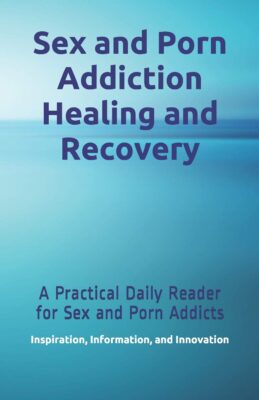 Scott Brassart
Scott Brassart
The first step in every 12-Step program reads:
We admitted we were powerless over [our addiction]—that our lives had become unmanageable.
Stated another way, the first thing recovering addicts are asked to do is surrender, to admit we have lost our battle with addiction. Sometimes we think that surrendering in this way means we have given up, that we have no ability to recover and we cannot ever hope to overcome our addiction. I know that’s what I was thinking. In fact, when a brave (and very kind) therapist performed an initial assessment of me and my behavior and said, “Scott, you’re an addict,” my first thought was Aha! So that’s the issue. I can’t believe I didn’t figure that out on my own. My second reaction was, This is great. Now I have an excuse for all my horrible behavior.
Basically, in my mind, surrendering to my addiction meant there was nothing I could do about it, so why even try. Just give in and roll with the punches. I did, however, feel a need to at least go through the motions of recovery. After all, I wanted my family to still love and care for me, and I wanted my employer to still put money in my bank account every two weeks. For that, I needed to at least look like I was addressing my addiction and making changes in my life. But secretly I was thinking, I’m an addict and there is nothing I can do about that. I can’t fight it. All I can hope for is to do a better job of hiding it.
 The good news is that in the course of attempting to create a façade of health and wellbeing, I agreed to regular therapy and, after considerable resistance, 12-Step recovery. Through that work, in particular 12 Step meetings and working the steps, I learned that I wasn’t being asked to surrender to the addiction itself; I was being asked to surrender to the reality of having an addiction and the reality that, with help and hard work, it was possible to overcome that addiction. Before long, I understood that if I surrendered to and accepted those realities, I could address my addiction in meaningful ways.
The good news is that in the course of attempting to create a façade of health and wellbeing, I agreed to regular therapy and, after considerable resistance, 12-Step recovery. Through that work, in particular 12 Step meetings and working the steps, I learned that I wasn’t being asked to surrender to the addiction itself; I was being asked to surrender to the reality of having an addiction and the reality that, with help and hard work, it was possible to overcome that addiction. Before long, I understood that if I surrendered to and accepted those realities, I could address my addiction in meaningful ways.
This realization was my first important experience with the all-important recovery concepts of surrender and acceptance, but not the last. As my recovery progressed, often in fits and starts, I began to see that my powerlessness and inability to manage my life applied to much more than just my addiction.
I am not the only addict ever to have this realization. In fact, most of us, as recovery progresses, eventually learn that to maintain long-term sobriety, we must apply the concepts of surrender and acceptance to every aspect of life.
This is best described in the book Alcoholics Anonymous, which states:
When I am disturbed, it is because I find some person, place, or situation—some fact of my life—unacceptable to me, and I can find no serenity until I accept that person, place, thing, or situation as being exactly the way it is supposed to be at this moment. … Unless I accept life completely on life’s terms, I cannot be happy. I need to concentrate not so much on what needs to be changed in the world as on what needs to be changed in me and in my attitudes.
Stated another way, as recovery addicts hoping to stay sober and live better lives, we must accept that we cannot control the thinking and behavior of any person other than ourselves. The best we can do is set healthy boundaries around the behavior of others to protect ourselves. But we cannot control their choices any more than they can control our choices. They will think what they think and do what they do and there is nothing we can do about it.
In this life, all that we really have control over is ourselves. The only thing we can change is ourselves. And much of the time, the easiest (and perhaps only) thing we can change about ourselves is our attitude toward the choices that other people make. We must accept other people, places, things, and situations as what they are – even when we “know” that everyone would be better off if they would just behave the way we think they should.
This brings us to the primary paradox of recovery: By surrendering to and accepting reality – all of reality – we are actually empowering ourselves. No, we do not empower ourselves to control the thoughts and behaviors of others. But we do empower ourselves to address the truth of our lives, regardless of what that truth – that reality – happens to look like at any given time. By relinquishing control over others, we gain control over ourselves – our thinking, feelings, fears, actions, reactions, and even our addiction.
* * * * * * * * * *
If you or someone you care about is struggling with sex, porn, or substance/sex addiction, help is available. Seeking Integrity offers inpatient treatment for sex, porn, and substance/sex addicts, as well as low-cost online workgroups. At the same time, SexandRelationshipHealing.com offers a variety of free webinars and drop-in discussion groups, podcasts, and more.
